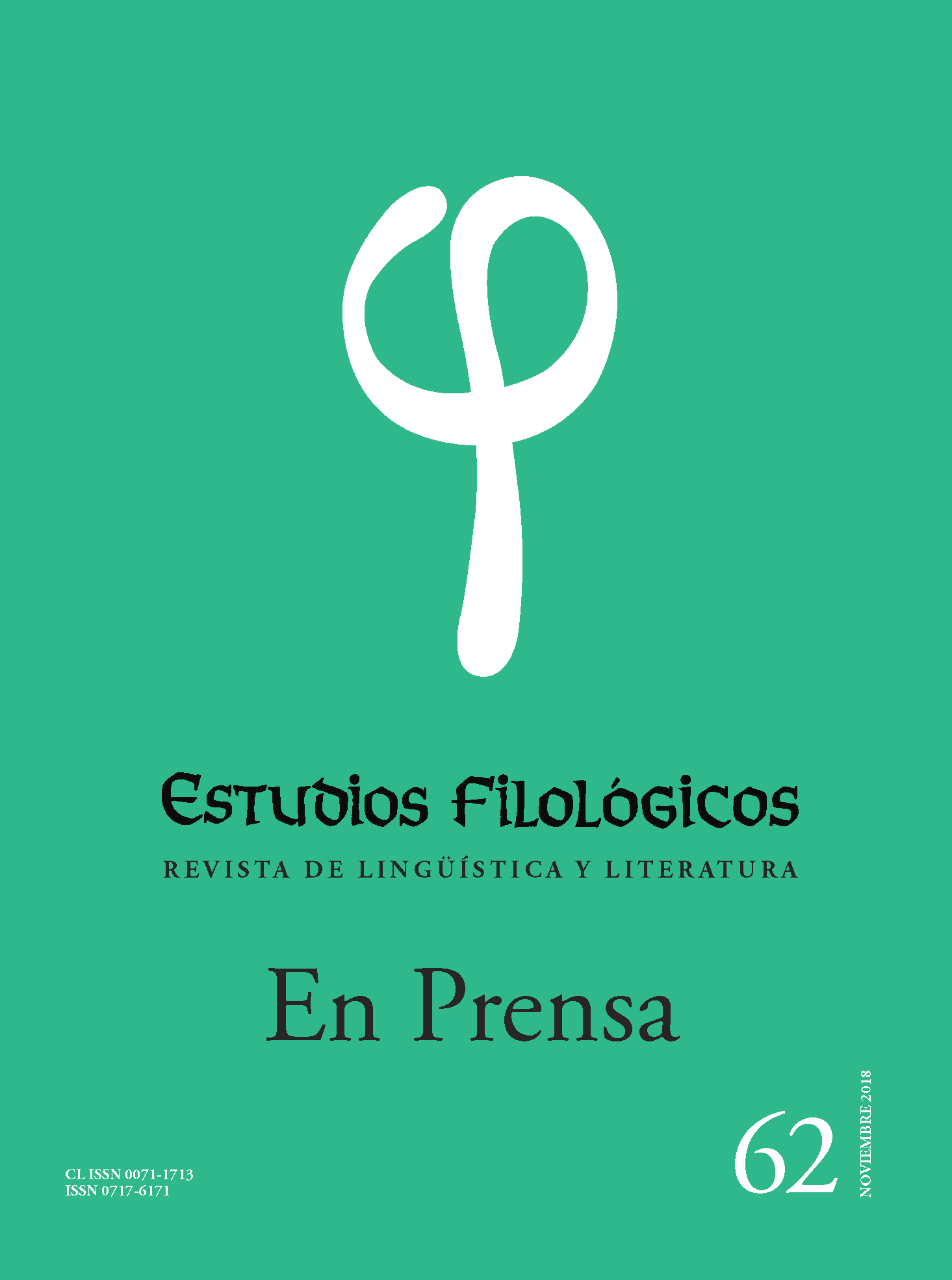The Becoming of Female Bodies in Lina Meruane’s Fruta podrida (2007): Memory, Toxicity and Annihilation
Main Article Content
Abstract
This article proposes a reading of the novel Fruta podrida (2007) by Chilean writer Lina Meruane in terms of its consistent exploration of the potentialities of the female body. Such corporalities are articulated through imaginaries and practices of contamination and toxicity based both on the interpenetration of the human and the non-human and on writing and reading strategies and materialities. Toxic imaginaries enable multiple modes of ‘becoming’ in the novel which, in turn, inaugurate new understandings of the contemporary articulation of the female body in the context of the Chilean countryside in close relation with complex global systems of economic and subjective production. Thus, in this novel toxicity operates to visibilize bodies and practices implicitly marked in terms of gender, race, social class and geopolitical origin, as well as the subjects, memories and local histories of the Chilean countryside.

